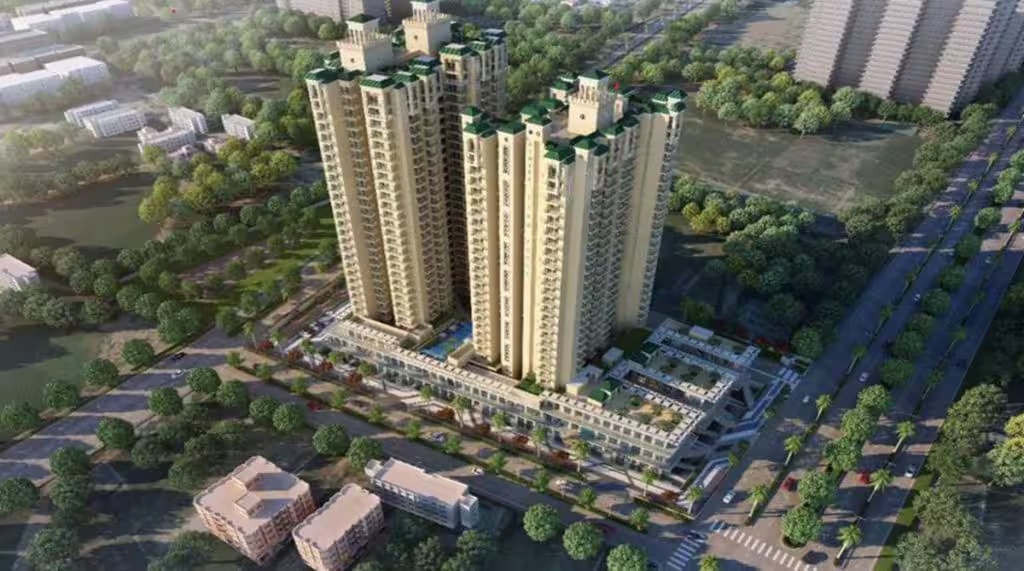CategoriesPress Coverage
Driven by economic stability, policy reforms, and changing consumer dynamics, India’s real estate sector has registered strong growth with a massive uptick in demand in 2023.
India’s economic stability has played a pivotal role in the resurgence of the real estate market. With a robust GDP growth rate and a focus on infrastructure development, the country’s economic dynamics have also provided a fertile ground for real estate investments. Stable economic conditions instil confidence among investors, fostering a conducive environment for property transactions.
Nayan Raheja of Raheja Developers says, “The Indian government’s proactive measures and policy reforms have been instrumental in revitalizing the real estate sector. Initiatives such as RERA (Real Estate Regulatory Authority) and PMAY (Pradhan Mantri Awas Yojana) have enhanced transparency, accountability, and affordability, making real estate transactions more secure and accessible to a broader spectrum of the population.”
Rajesh K. Saraf, Managing Director of Axiom Landbase Pvt Ltd, says, “Changing demographics and evolving lifestyle preferences have led to a shift in what Indian consumers seek in real estate. The demand for modern amenities, sustainable living spaces, and well-connected properties has given rise to innovative projects catering to homebuyers’ contemporary needs.”
Also Read: Investment Planning For Girl Child: Where to invest for your girl child’s future?
The advent of technology has also significantly impacted the real estate sector.
“Online platforms, virtual tours, and digital marketing have revolutionized how properties are showcased, and transactions are conducted. This digital transformation has streamlined processes, increased market reach, and empowered buyers with comprehensive information. Besides, the advancement of affordable luxury housing initiatives has propelled the real estate market ahead in Tier 2 and 3 cities,” says Rajjath Goel, Managing Director, MRG Group.
Favorable interest rates have also contributed to the buoyancy of the real estate market.
Kushagr Ansal, Director of Ansal Housing, informs, “Lower interest rates on home loans make property ownership more attractive and accessible, encouraging prospective buyers to invest in residential and commercial spaces. The government’s emphasis on affordable housing projects has propelled the real estate market forward in Tier 2 & 3 cities. Incentives and subsidies for affordable housing initiatives have expanded housing options for the middle and lower-income segments and injected dynamism into the overall market.”
Apart from the above-mentioned things, the real estate sector has witnessed a surge in foreign direct investment, reflecting the confidence of global investors in India’s growth story. “Foreign capital inflows contribute to large-scale developments, infrastructure projects, and the overall expansion of the real estate market,” he adds.
Thus, the Indian real estate market at the end of 2023 is poised to enter a promising era. The convergence of economic stability, government reforms, changing consumer dynamics, and technological advancements have created an environment conducive to growth and prosperity. The sector will continue to play a pivotal role in shaping India’s urban and economic future, setting the stage for sustainable development and increased opportunities for all.
India’s economic stability has played a pivotal role in the resurgence of the real estate market. With a robust GDP growth rate and a focus on infrastructure development, the country’s economic dynamics have also provided a fertile ground for real estate investments. Stable economic conditions instil confidence among investors, fostering a conducive environment for property transactions.
Nayan Raheja of Raheja Developers says, “The Indian government’s proactive measures and policy reforms have been instrumental in revitalizing the real estate sector. Initiatives such as RERA (Real Estate Regulatory Authority) and PMAY (Pradhan Mantri Awas Yojana) have enhanced transparency, accountability, and affordability, making real estate transactions more secure and accessible to a broader spectrum of the population.”
Rajesh K. Saraf, Managing Director of Axiom Landbase Pvt Ltd, says, “Changing demographics and evolving lifestyle preferences have led to a shift in what Indian consumers seek in real estate. The demand for modern amenities, sustainable living spaces, and well-connected properties has given rise to innovative projects catering to homebuyers’ contemporary needs.”
Also Read: Investment Planning For Girl Child: Where to invest for your girl child’s future?
The advent of technology has also significantly impacted the real estate sector.
“Online platforms, virtual tours, and digital marketing have revolutionized how properties are showcased, and transactions are conducted. This digital transformation has streamlined processes, increased market reach, and empowered buyers with comprehensive information. Besides, the advancement of affordable luxury housing initiatives has propelled the real estate market ahead in Tier 2 and 3 cities,” says Rajjath Goel, Managing Director, MRG Group.
Favorable interest rates have also contributed to the buoyancy of the real estate market.
Kushagr Ansal, Director of Ansal Housing, informs, “Lower interest rates on home loans make property ownership more attractive and accessible, encouraging prospective buyers to invest in residential and commercial spaces. The government’s emphasis on affordable housing projects has propelled the real estate market forward in Tier 2 & 3 cities. Incentives and subsidies for affordable housing initiatives have expanded housing options for the middle and lower-income segments and injected dynamism into the overall market.”
Apart from the above-mentioned things, the real estate sector has witnessed a surge in foreign direct investment, reflecting the confidence of global investors in India’s growth story. “Foreign capital inflows contribute to large-scale developments, infrastructure projects, and the overall expansion of the real estate market,” he adds.
Thus, the Indian real estate market at the end of 2023 is poised to enter a promising era. The convergence of economic stability, government reforms, changing consumer dynamics, and technological advancements have created an environment conducive to growth and prosperity. The sector will continue to play a pivotal role in shaping India’s urban and economic future, setting the stage for sustainable development and increased opportunities for all.


